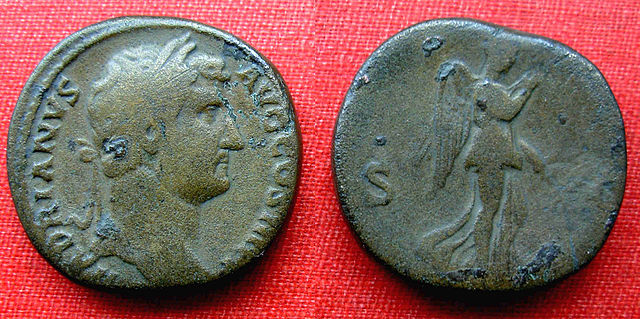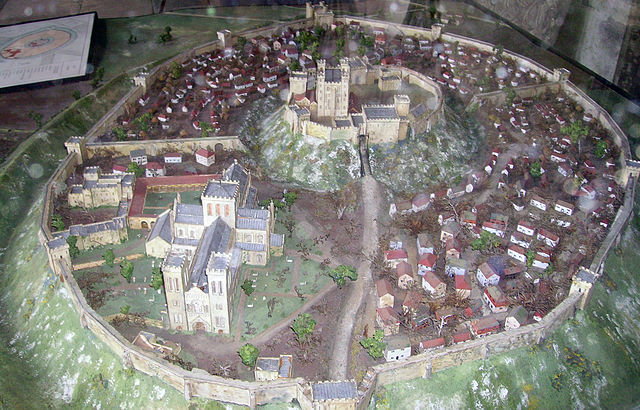Indian village where people speak in Sanskrit
A village in the southern state of Karnataka where most residents speak Sanskrit is in focus at a time when the Indian government’s insistence on promoting the ancient language has sparked a debate over the role it plays in the lives of people in the country now.
Read more here.
Read And Write Like An Egyptian
Over 5000 years ago, ancient Egyptians wrote using a picture writing called hieroglyphics. The writers were called scribes. Not everyone had this training not even the Pharaoh and his family. There was a problem because Egyptians wrote down everything, and hieroglyphs were beautiful, but time consuming!
Read more here.
Why the historical perspective on language matters
The modern world is full of tensions and conflicts about language. Some people worry that their language is being debased, depraved, and despoiled by the sloppiness of e-mails and text messages.
Others are upset that an influx of words from another language – usually English – is radically changing their language. Many express fears of minority languages dying out altogether as their speakers shift to using English.
Read more here.
Greek Mythology: “Nemesis, the Goddess of Revenge”
Nemesis was the spirit of divine retribution against those who succumb to Hubris (arrogance before the gods).
Read more here.
Readers’ love letters to libraries
Libraries won’t be going out of fashion any day soon, if readers’ love for them is anything to go by.
Read more here.
Old Sarum archaeologists reveal plan of medieval city
A detailed plan of a medieval city has been produced by experts without any digging at the site.
The latest scanning techniques were used to uncover a network of buildings at the 11th Century Old Sarum near Salisbury in Wiltshire.
The results include a series of large structures, possibly defences, with open areas of ground behind possibly for mustering resources or people.
Old Sarum was the original site of Salisbury, which is two miles away.
Read more here.
Richard III’s DNA throws up infidelity surprise
Analysis of DNA from Richard III has thrown up a surprise: evidence of infidelity in his family tree. Depending on where in the family tree it occurred, it could cast doubt on the Tudor claim to the English throne or, indeed, on Richard’s.
Read more here.
Hi-tech schools rescuing an ancient language
Technology and education have a long, complicated and sometimes exaggerated relationship
Read more here.
Five centuries in this town

Old town

New town
On Thursday evening, I went to a lecture about this town’s history during five hundred years. As most of my followers know, I hate this town, so in a way, it’s odd that I wanted to go and listen to that. On the other hand, I also love history.
The guy who did the lecture works at the museum and he’s got a bit of a reputation (oddly enough, since he’s such an unimpressive character when you look at him – or listen to him), but it’s not about his personal life, I was going to tell you. Anyway, he performed well enough, as a lecturer.
The first ‘century’ (not quite a century) – the sixteenth – was actually before the town proper was founded, in fact before the earlier town too. From the early sixteenth century, there was a market place at the south end of the big lake.
At the end of one of our wars with our big neighbour in the east, the king wanted to place prisoners of war (officers, not ordinary foot soldiers) in the care of the people responsible for the market place. They, on the other hand did not want to play host to a bunch of foreign officers. They claimed that they were too poor, and that there were only a few old, infirm people living there, and finally, that only towns were required to house prisoners of war. Apparently the king really wanted to place the prisoners there, because his response was giving the market place town privileges.
This was built some distance to the south of the original market place, where there is still a church ruin and an old cemetery. To modern eyes, the town would look very small and cramped, with a number of houses laid out unevenly around a small cobbled square.
The town was in existence for just over a generation but there are some very interesting stories about it. The lecturer did not go into them during this lecture, but I happen to know that he’s written a book about them. I won’t go into the stories in this blog post either, since it’s about this particular lecture.
Then the harbour began to silting up and it was no longer possible to conduct the town’s main business – transport, and the town had to be moved. It was also built on a rocky slope which made it hard to expand. Despite that, the townspeople were reluctant to leave and (again, not included in the lecture) the authorities had to use underhanded methods to get them to move out. The final straw was that the Danes invaded and razed the town.
So after all kinds of trouble and tribulations, a town was built on a peninsula that would be more easily defensible. Originally, it was meant to be built as a fort (hence the name ending in -borg, which means fort/castle), but in the end, the fortifications weren’t all that impressive.
I’m not going to go into all the twists and turns of the town’s history. At times I found my mind wandering. In any case, the Danes returned a couple of times and burned the town again. When the defenders had to burn the few buildings they’d already got in place, to avoid having the enemy barricading themselves there, the wide streets made it easy to put out the fire. Despite that, the town was burned down a couple of times, notably close to its two hundredth anniversary in 1834.

Songwriter
What really caught my interest was the mention of one of our most famous 20th century poets (early 20th century). It amazed me how much he and I had in common.
His parents had a shop in town (so did my grandparents, not my parents). They felt ostracised by the townspeople. He (Birger), had trouble with his education (high school), just like I had trouble with mine (university). It was hard for him to focus, so instead he spent his time during lessons, looking out the window, memorizing what he’d seen then telling people about it, eventually writing it down. I, too, had trouble focusing and started to drift off into a fantasy when I felt unable to keep up (though it was mainly the exams and the papers that I had trouble with, not the lectures).
In the end, he left without sitting the exams, and started writing (in his case poetry). Even though he’d failed his music classes, someone was allowed to set music to his poetry so he became, rather against his will, a songwriter, and was forced to go on tour, though he felt too shy for that. Eventually, he ended up reading his poetry on stage, to the people of his own childhood home town, but despite all his self doubt, instead of being a failure, he was actually hailed as a great success, so I guess a few people really do end up popular, even in their own home towns.
Speaking More Than One Language Could Sharpen Your Brain

The Tower of Babel
Speaking more than one language does the brain some good. A recent study found that bilingual speakers may actually process information more efficiently than single-language speakers.
Read more here.







